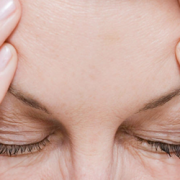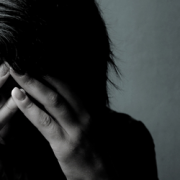Symptoms of Hypothyroidism
When you consider how tiny the thyroid gland really is, you may find it surprising that it can be responsible for such a large number of associated symptoms of hypothyroidism. We tend to think of hypothyroidism mostly in terms of our metabolism and its connection to our ability to lose or gain weight, but it’s really so much more.
The thyroid gland, which is often compared to the shape of a butterfly, manufactures important and necessary hormones the human body needs in order to remain in optimal health. Most important, the gland must produce these hormones in exactly the right amount.
If the thyroid isn’t making enough of these hormones, which is quite common, the body can develop any of the various symptoms of hypothyroidism. Unfortunately, there are so many symptoms of hypothyroidism that are wrongfully attributed to other disorders, it is often overlooked and the hypothyroidism diagnosis is missed.
Flaw in Hypothyroidism Testing
Because of flaws in the currently used testing methods, many people are misdiagnosed due to inaccurate negative test results. And their health care provider never associates their complaints with the symptoms of hypothyroidism.
The consequence is that many patients, who would benefit from the right treatment for hypothyroidism, are given other medications and treatments which are unnecessary and oftentimes dangerous. Because of this, a thorough knowledge of the many symptoms of hypothyroidism is the only absolute approach for an accurate diagnosis of hypothyroidism.
There is an approach which is not only quite simple, but always leads to a correct diagnosis. It involves a therapeutic trial wherein the patient simply follows a proper hypothyroidism treatment protocol. It includes eating the correct diet for hypothyroidism and closely monitoring symptoms. If your symptoms improve, you can rest assured your suspicions about having Hypothyroidism are correct.
Symptoms of Hypothyroidism by Category
Symptoms of hypothyroidism are numerous and involve several systems of the body. Before we take a look at some of the signs you need to be aware of, keep in mind that in its early stages, hypothyroidism usually has very mild symptoms that can easily be overlooked.
Eventually, however, as hormone levels worsen, symptoms will become more apparent. Also keep in mind that the condition is more prevalent in women than in men and especially in women over the age of 50.
Below, I’ve broken down the symptoms of hypothyroidism by simple categories according to the system they affect.
Muscle and Joint Problems
Hypothyroidism has a tendency to create muscle or joint-related complications. Symptoms of hypothyroidism can range from a mild sense of weakness in your arms to the debilitating condition known as carpel tunnel. Any of the following symptoms could actually be pointing to hypothyroidism.
- A general sense of weakness

- Carpal tunnel (pain, tingling, burning and discomfort in your wrist)
- Cramps or stiffness
- Discomfort in your toes
- Joint pain and aches
- Muscular weakness
- Muscular pain
- Tarsal tunnel syndrome (pain, tingling, burning, and discomfort in the arch of your foot
- Tendonitis (legs or arms)
Voice, Neck and Throat Problems
The following hypothyroidism symptoms often begin with a sense of swelling or fullness in the neck. As the disorder progresses, you may develop a noticeable swollen neck or goiter.
- Hoarse or gravelly voice
- Swollen neck or swollen area in the neck
- Goiter
- Pain in neck region
- Noticeably enlarged thyroid
Eye Problems
Eye problems related to hypothyroidism are often misdiagnosed. Many people have a tendency to attribute blurred vision and dry eyes to growing older, but oftentimes hormonal imbalances can play a significant role. So, your eye issues could be just other symptoms of hypothyroidism.
- Blurred vision
- Dry and gritty eyes
- Heavy Eyelids
- Puffy eyes
- Sensitivity to light and/or the sun
Heart Problems
As you can see from this list of cardiac disorders, untreated hypothyroidism can lead to serious and life threatening conditions.
- Clotting/Bleeding issues
- Fast pulse (over 90 BPM)
- Heart Disease
- Heart Palpitations
- High Blood Pressure
- High Cholesterol
- Low Blood Pressure
- Slow pulse (under 60 BPM)
Sleep Problems
Generally, sleep disorders go hand in hand with hypothyroidism. Any of the following may be symptoms of hypothyroidism.
- Difficulty getting out of bed in the morning

- Excessive snoring
- Feeling unrested when waking up
- Frequent nightmares
- Insomnia
- Night Sweats
- Poor quality of sleep
- Sleep apnea
Energy Problems
One of the most common symptoms of hypothyroidism is a sense of being tired all the time. In fact, fatigue is often the first symptom noticed by someone suffering from multiple hypothyroid symptoms.
- Afternoon energy crash
- Always feeling fatigued
- Feeling exhausted after 8 to 10 hours of sleep
- Inability to exercise
- Inability to get through a day without a nap
- Loss of stamina
Hair, Skin and Nail Problems
Your hair and skin are especially susceptible to thyroid conditions. Brittle nails that tend to break, or hair that changes from normal to coarse and dry, especially if it falls out or breaks off could actually be symptoms of hypothyroidism.
- Brittle Hair
- Hair Loss
- Loss of Eyelashes
- Skin that becomes dry and coarse
- Unusual loss of eyebrow hair
- Brittle nails that break easily
Symptoms Specifically for Women
Thyroid hormones function in many different parts of the female body, including the reproductive system. Many women find themselves suffering from any number of the following symptoms of hypothyroidism.
- Fibroids
- Infertility
- Loss of Libido
- Painful periods
- PMS
- Postpartum thyroid difficulties, especially in conjunction with depression
- Repeated miscarriage
- Severe menstrual cramps
- Unusual menstrual periods – increased flow, more frequent periods
Symptoms Specifically for Men
Similarly, the thyroid hormones are important to the male reproductive system as well. As with many of the signs and symptoms of hypothyroidism, they are often overlooked and attributed to some other disorder.
- Erectile dysfunction
- Loss of libido
Mental and Emotional Problems
Unfortunately, a considerable number of problems related to your mental and emotional health can actually be caused by a thyroid that isn’t producing the accurate balance of hormones.
- ADD/ADHD
- Antisocial behavior
- Bipolar tendencies
- Confusion, restlessness, poor concentration
- Depression
- Difficulty learning new things
- Easily upset
- Epilepsy or seizures
- Lack of confidence
- Light headedness, vertigo or dizziness
- Loss of motivation
- Mood swings
- Panic attacks
- Phobias
- Slow speech,
- Trembling, Jittery or shivery feeling Lack of coordination
Immune Related Symptoms of Hypothyroidism
As you can see from this list, hypothyroidism can lead to some very severe medical conditions. Unfortunately, these are often misdiagnosed and the real problem is overlooked.
- Asthma
- Cancer
- Autoimmune Disease
- Fungal and Candida infections
- Lupus
- Multiple Sclerosis
- Recurring upper respiratory infections
- Recurring urinary tract infections
- Rheumatoid Arthritis
Digestive Problems
As with the other systems in the human body, digestive disorders can be annoying, and in some cases lead to more severe conditions that can become chronic and serious. If you suffer from any of these symptoms of hypothyroidism, consider the fact that your thyroid may be the problem.
- Abdominal distention
- Alcohol intolerance
- Bad breath
- Constipation
- Cravings for salt
- Cravings for sweets
- Diabetes
- Difficulty swallowing
- Dry mouth
- Excessive gas
- Food allergies and sensitivities
- Hemorrhoids
- Hypoglycemia
- Irritable bower syndrome (IBS)
- Liver/gallbladder issues
- Loss of appetite
- Swollen tongue or ridges on tongue
Believe it or not, this is only a partial list of the many symptoms of hypothyroidism. If you are suffering from any of these health problems and haven’t been able to track down the cause, it’s time to consider hypothyroidism as a real legitimate possibility. Remember, even if you’ve had a thyroid tested and it came back negative, that doesn’t necessarily mean you don’t suffer from hypothyroidism.












Leave a Reply
Want to join the discussion?Feel free to contribute!